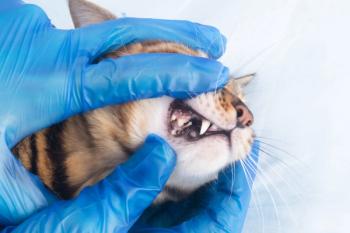
Cat neuter rates reflect income levels, study says
Bethesda, Md. - Cost plays a major role in keeping some pet owners from having their cats neutered, according to a new study.
Bethesda, Md. — Cost plays a major role in keeping some pet owners from having their cats neutered, according to a new study.
Conducted by the stray cat advocacy group Alley Cat Allies, the study reveals that while nearly 91 percent of those surveyed in the $35,000 to $75,000 income bracket had their cats neutered or spayed, only about 51 percent of those earning less than $35,000 had done so.
"When it comes to cats, it seems to be the norm among our households to spay and neuter. That's the good news," says Becky Robinson, president of Alley Cat Allies. "But cost is cited as the major reason for not having cats spayed or neutered. There needs to be policies and programs that increase the availability (of these surgeries)."
Robinson and the veterinary community may have very different thoughts on how that gap can be closed.
Now that the majority of people seem to be on board with spaying and neutering, veterinarians could help make the services more accessible to lower-income groups, Robinson says.
"If it's made available to them, they will go," Robinson says, suggesting there be more low-cost and mobile clinics offered. "Some communities depend on public transportation, and people can't bring their cats on the bus."
But Dr. Roberta Lillich, president of the American Association of Feline Practitioners, says DVMs can't be expected to shoulder the responsibility of neutering cats in low-income households on their own.
"It becomes difficult for veterinarians to provide those services in a manner that is high quality and addressing appropriate pain management and anesthesia while still keeping it in a range lower-income brackets can afford," she says.
Many people rely on emotions when taking in a cat, Lillich adds — a statement backed by the study, which shows that about 71 percent of those surveyed took in at least one of their household cats from a friend or family member or as a stray.
"When acquiring a pet, it's really easy to allow emotion to overshadow any concerns you have about owning that pet ... but the point that needs to made is if you're looking to acquire a pet, you have to look into what those services cost," Lillich explains.
Veterinarians should educate potential or new pet owners about the lifetime costs of caring for their pets and help them budget for the best care. But giving away free sterilizations isn't practical, she says.
"If you're using the appropriate techniques, the hard costs are still there," even if veterinarians donate surgical time, Lillich says. "To expect veterinarians in any community to provide that service at a loss is difficult, especially in this economy."
To read the full study, visit
Newsletter
From exam room tips to practice management insights, get trusted veterinary news delivered straight to your inbox—subscribe to dvm360.






